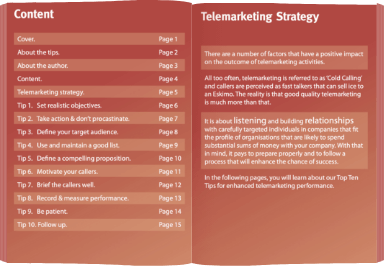In many ways, what represents B2B lead generation is best defined by the decision-maker in an organisation who wants to generate sales leads. The simple reason for this is that leads come in all shapes and sizes and the depth of qualification required also varies depending on:
- The stage is the sales cycle
- The requirements of the business
- The role of the sales team
In some respects, we should also split the definition into a definition for a lead and also for the tasks required to generate that lead. What do we mean by that?
What is a lead?
Our core business is lead generation. Yet, client requirements vary widely in terms of what they expect from us. Some clients thin of a lead as an accurate piece of data that contains one or all of the following:
- Company name
- Company address
- Contact name(s) for the desired function(s)
- Job title
- Email address (direct or derived but usually not generic such as info@)
- Phone number (ideally direct line or mobile but at least the company number)
- LinkedIn profile and URL
These ‘leads’ may also be based on a profile or set of criteria. These include location (postcode, town, country, region), size (employee numbers or turnover or both), sector and so on.
The aim of providing these kinds of leads is to allow the marketing and sales teams, usually within a business, to target them using one or more channels. In essence, what we’re talking about here is a set of refined data for marketing. At this stage, it is only profiled but not qualified. We will deal with that later. Hence, this is a data building or data validation exercise and not pure sales activity. Nevertheless, it still adds value since it removes wastage from the sales and marketing process.
Qualified leads
The next level up from the above is a qualified lead. Once again, there are numerous levels. The deeper the qualification, the more difficult it is to unearth the lead. Some organisations demand BANT qualification. This is deep qualification that usually needs to be done over a phone call but could feasibly be the result of gated content whereby the recipient of a white paper or report can only gain access by answering a specific set of questions. These include their budget, level of authority, requirements and the timeframe.
For some companies, lighter qualification works too. It allows them to start to nurture the relationship in advance of the prospect being ready to buy. It still may require either face to face or phone interaction such as at an event or following a webinar. The lead may not be hot but the organisation may be relevant and regular communication over time may lead to an opportunity.
Lead generation methods
Marketing is often tasked with the process of identifying and converting leads into something with which the sales team can work. There are almost too many channels and methods to list here. Yet, once again, we need to consider the level of warmth when it comes to what constitutes value in the process.
Some of the most common methods include:
- Events – exhibitions, conferences, round-tables, webinars, seminars etc
- Content marketing – using white papers, reports and thought-pieces to drive downloads
- Social media content distribution – once again to drive enquiries and downloads
- Email marketing – to targets on your CRM database or beyond
- Telemarketing – allowing a deeper level of qualification to move the led closer to BANT
- SEO – with the aim to encourage leads onto your website
- Pay-Per-Click – either Google or other sources to drive lead using keywords
- LinkedIn ads or sponsored content – to a focused landing page where there may be gated content and an enquiry form
- Influencer marketing – reaching out to those that carry weight in your sector
- Sponsorship – generating visibility and credibility that could result in greater interest in your products and services
Naturally, the list can be expanded enormously. We should ignore marketing to past or lapsed clients. Newsletters sometimes play a role. Syndicated content and native advertising can be relevant. Partnering with other organisations to cross-promote can be beneficial.
Budget, accessibility and triggers
Ultimately, the budget for your exercise and the accessibility of your target audience will drive the choice of method and channel. Your level of exiting awareness and whether what you offer is a hot topic will also play a part in your decision. Relatively recent examples of this could be GDPR, Net Zero, KYC in financial services. Finding a valid trigger will definitely assist you in increasing the number of leads into your business.
Different target roles behave differently in terms of how you might reach them. The higher the seniority, the more elusive they will be and they will be less likely to respond to any marketing. And, we shouldn’t forget that, whilst these decision-makers may sign the cheque, they may not experience the immediate pain that prompts the search for a new supplier. Hence, identifying influencers within an organisation with whom you can engage is also a key part of the sales process and could equally construe a valid lead.
Conclusion
Of course, we could stick with a simplistic view and use the Oxford Dictionary definition which states that it is the action or process of identifying and cultivating potential customers for a business’s products or services. Yet, there’s so much more to it and that’s not least why so many businesses operate within this space.






